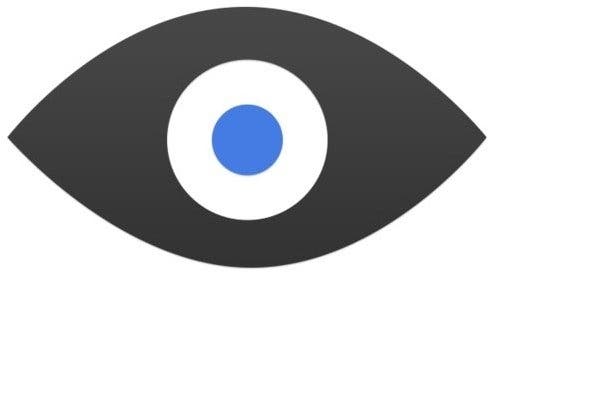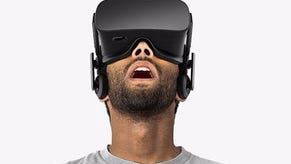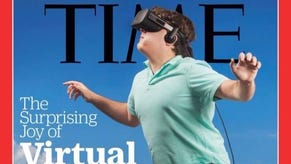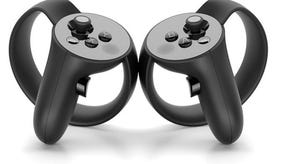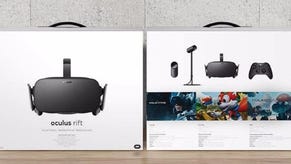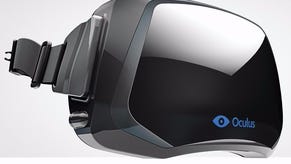Oculus answers the big Rift questions
Does it still care about games?
A year ago I told Palmer Luckey's story, about how he'd invented what would become Oculus Rift in his parent's garage. He was the boy wonder swept up in a rollercoaster of success after John Carmack demoed his VR headset at E3 2012. Zoom went the Kickstarter campaign; zoom went the flood of excited, experimental game support; zoom went the increasingly massive piles of money raised by investors. A year later he was a millionaire, and now, two years later, he's a multi-multi-millionaire, his company acquired by one of the biggest around, Facebook, and for a staggering $2bn.
It's against that backdrop I meet him face-to-face at Gamescom 2014, and I have lots of questions. I worry Facebook has changed Oculus' priorities and that games - those things so responsible for putting Rift on the map - are no longer the reason for being, the prime concern. I worry Palmer Luckey is drifting with Oculus VR into a sea of money, on a boat stuffed with well dressed corporate clones who shave each morning and smell... neat. Bye bye games, thanks for the lift.
It's encouraging Luckey is here at all, mind you, at a games show half-way across the world for him. And when I emerge an hour later I also feel reassured; Luckey and his co-host, co-founder Nate Mitchell, are genial and generous with their time, and they're making all the right noises. Those noises I've loosely grouped into topics below.
Where the hell is the consumer version?
Consider that Oculus Rift DK2 (development kit two) has just been released and the consumer version is understandably not imminent. More than 20,000 DK2 units have been shipped and more than 60,000 units ordered. Oculus has its hands full fulfilling that. What about in 2015 - will we see the consumer version then? Like a well-oiled robot Luckey replies, "We don't have anything to announce at this time." Mitchell laughs. "Sorry," he says, "that's the toughest question - it's the one that pains me the most!"
It's frustrating because Oculus Rift has always seemed so within reach. DK1 was shipped so liberally. But consumers are warded away from DK2 - "if you're a consumer, you shouldn't buy a DK2", says Mitchell - which leaves you with only the option of getting in a long line of people at a games show if you want to have a go.
Oculus VR has only been around for two years as a company, Luckey reminds me. "This isn't a case of 'oh Oculus has been dragging on and on'. If you look at most consoles, the cycle - from when the first developer kits are shipped to when they actually launch a product - is usually at least two or three years. It's just all behind the scenes. Consumers don't know about it until it's basically ready to go - completely designed - and heading out the door. Then they announce it."
"And those are companies who've shipped hardware before," Mitchell chimes in, "with hundreds if not thousands of people working on the project right off the bat."
Luckey picks up his thread: "Whereas we're a company that literally just started. We started out showing everything we're working on and getting to as many developers as possible, and letting anyone order it. We could have just stayed in stealth mode and sent it to a few game developers and we could have announced a year from now and said, 'OK! It's ready to go.' But that would have been negative - much worse for VR overall.
"At launch we don't just want to have a token five, six or seven launch titles like a lot of consoles. You have to have a lot of stuff coming out the door at launch. So I guess to those people who are waiting: keep waiting and it will be worth the wait. And..."
Mitchell finishes his thought: "Sorry."

What the hell is the consumer version like?
The good news is that the hardware specifications are already nailed down. "We know what we're making and now it's a matter of making it," Luckey says. And it will be quite a lot better than DK2. "The consumer version is significantly improved," he nods. "The jump from DK1 to DK2 is similar to the jump from DK2 to CD1 [the consumer version]."
DK2 took the resolution from 720p up to 1080p, reduced blur, smear and judder, and added positional/head tracking. But the resolution, although better, isn't good enough. I struggle in Elite: Dangerous targeting enemies because I can't clearly pick them out against the backdrop of space behind them. Luckey understands the issue and says "yes", the resolution for the consumer version will change, will increase, although he won't say to what. "It is a significant increase," I manage to get him to say.
The refresh rate will rise from 75Hz to 90Hz "or higher", apparently, and the improved design brings down both the weight and size of the headset. Will it look fairly similar to how it does how? "Depends on what... fairly similar is a very amorphous term!" responds Mitchell. "It will look like a VR headset." But will it be recognisably Oculus Rift? "I think so," he says.
There's a slight possibility of a major new feature being added for the consumer version in the same way that head-tracking was added to DK2. "Maybe," teases Luckey. "We'll see." And Mitchell laughs.
Your experience of using the device to play games will be smoother because setting it up at the moment is "kind of a nightmare". "We want that whole experience to be super-polished and easy to use for anyone," Mitchell says. "There's a lot of work to be done there, especially on the software side."
As for the eventual price: the consumer version should come in similar to what DK2 costs now. "We want to stay in that $200-$400 price range," he states. "That could slide in either direction depending on scale, pre-orders, the components we end up using, business negotiations..."
"Whatever it is," Luckey adds, "it's going to be as cheap as possible." Mitchell nods: "That's really the goal."
You don't care about games any more!
Yes, apparently, Oculus does. When I ask how important games are Mitchell replies, decisively and almost instantaneously, "Critical." Then he goes on: "That's the only focus. We want VR to really transform the world and to actually put a dent in the universe.
"We really do want to revolutionise games and allow people to finally step inside of them. In the near-term, like Palmer said, the only industry equipped to pull VR off, and the only industry crazy enough to really deliver it, is the game industry. We're the ones who are crazy enough to strap a VR headset to our head and are probably crazy enough to go buy the thing to begin with. So it starts with us and hopefully we carry the torch out in the next 10-20 years to the broader world."
Oculus Rift powering other kinds of experiences - such as some of the film and TV demos that reportedly stole the show at Comic-Con, despite Oculus as a company not actually being there - "is only a focus in the sense that we're trying to build the best platform for VR just like if we were trying to build the best mobile phone", he explains. "Most of the decisions we make mostly revolve around games."
"There's no way to make a great phone for games that also doesn't end up being a great phone for everything else," Luckey adds. "You want high resolution and lots of processing power, a nice battery, a nice large screen. Basically, gaming is the most demanding application you can imagine for a phone."
"It's similar with the Rift," Mitchell picks up. "We try to focus on building the best VR headset for games and everything else kind of falls out of that. If your daughter wants to use it to visit the Roman Colosseum in a classroom, it's going to be totally sufficient for that, because the four of us are using it to play World of Warcraft VR for hundreds of hours every week."
"Hundreds of hours every week?" Luckey questions him. "How many hours are there in a week?" He gets back to the point: "If we can work something that works well for gaming then it will naturally work well for everything else. ... Games are what's going to drive it."
"I was suggesting we combine all our 100 hours and that's 400 hours per week," comes Mitchell's delayed response.
"So all of us are spending hundreds of hours?"
"Correct!"
What's Facebook done to you?
Luckey and Mitchell tell me having Facebook as an owner has helped attract and afford talent that otherwise wouldn't gamble on a risky start-up tech company. There are 176 people at Oculus now and there will be more than 200 this time next year. "We have a lot more resources to do stuff but I don't know if Oculus has changed all that much," Luckey shrugs, looking at Mitchell. "There haven't been any major changes to the company," Mitchell agrees. "We operate pretty autonomously within Facebook and this is a good place to be."
'Really?' I wonder, and I think the gaming world does too. Facebook doesn't have any greedy grand designs, any dollar signs in their eyes that we ought to be afraid of?
"Facebook actually believes in this," Luckey insists. "A lot of companies buy other companies because they're doing things they're not already good at doing, and Facebook doesn't really have any gaming initiatives. They're spending a lot of money on mobile and web but a lot of people at Facebook, including Mark [Zuckerberg], believe that VR is going to be the next big consumer platform. Investing in that doesn't necessarily mean Facebook as an extension of their existing services, or what they're good at right now - they're buying us so that in the future they're good at what they think is going to be the next major shift in computers."
"When Google bought Android," Mitchell adds, "they acquired it when it was still a small company, and I would argue that Android would not be as successful or mainstream a computing platform as it is today if Google hadn't. You want to look at the Facebook-Oculus acquisition as something similar to that.
"If you do believe that VR is going to be the next big platform and in 20 years you don't actually have a cellphone, you have a set of AR/VR glasses, and we could be having this conversation with full body language while we're, all four of us, [spread] across the world... It becomes the ultimate communication platform. And who doesn't want to control the future of communication?
"It's definitely a risky bet; it's a bold bet by Facebook. They're like, 'VR will be the next big platform.' But if you believe it and you buy into it, that in 20 years we will have individual pairs of sunglasses and that's it, it replaces cellphones and everything else... It's a pretty sweet deal for $2 billion dollars."
You're becoming a VR publisher?
One of the games I try before the interview is Lucky's Tale, a 3D platformer in same way Mario 64 is. But with Oculus Rift you're inside the game, looking down on the world as if it were a toy set, and the character you're moving is one of the toys. This is one of the games Oculus is publishing and it's a strikingly effective new take on the genre (one my brain deals with but not my colleague's, who feels sick for hours after his demo).
The intention of publishing is to help VR games exist - a vested interest that normal publishers don't have. "We have an interest, obviously, in VR games succeeding," Luckey says, "to push VR forward, not just to make money off each individual game. Right now there's a clear need for people to step in and help games get made. It could be in five years that it's unnecessary. Could be that there's such a huge audience that it's not necessary for us to go and commission games. [We hope for] a VR market that's so robust that everyone is trying all kind of different things and hits are being made without us having to try and pick the winners."
"But until then," Mitchell insists, "we're going to be there helping."
The games Oculus publishes will understandably be 'only for VR' and exclusively for Rift. There may be exceptions and they'll be handled case by case. Eve: Valkyrie is one, the dogfighting spaceship game by Eve Online maker CCP. It's co-published by Oculus and is exclusive to Rift on PC as a result, but it's also confirmed for Sony's PS4 VR headset Project Morpheus, if that device ever comes to fruition (more on that in a topic below).
It may also be that someone like EA suddenly turns up with an idea for FIFA VR that it wants Oculus to help realise, the potential there being so potentially lucrative - and in Luckey and Mitchell's minds, so fitting - that it would be hard to resist. "You can imagine sitting in the stands and confetti is raining down, and the four of us are sitting right next to each other and we're controlling the players on the field - that would be an awesome VR experience," Mitchell dreams. "It feels like it's a natural fit, a natural port, so if EA showed up [and said], 'Hey would you help subsidise some of the risk for us to do this?' I might actually say, 'Yeah let's go for it - let's see if we can pull it off.'"
Sony's Project Morpheus must have changed a thing or two for you.
"No," says Luckey. "Basically zero per cent," adds Mitchell.
"Right now it's a tech demonstration for PlayStation 4," Luckey goes on. "They've said that it's not a product that they're announcing. There have been lots of things Sony's shown - they even showed AR glasses a few years ago at CES that were never made into anything. So even if they do decide to make it into a real product that ships, it's on PlayStation 4; we are not on PlayStation 4 so it doesn't really change our strategy or what we're making."
"And they've taken a lot of ideas from the Rift's design and put it into Morpheus," Mitchell reminds me, "so there's not a lot of inspiration to draw on, backwards, so... The one thing that is really good about it is that if they do turn it into a product, which, you know, the jury's still out if they do, then they'll invest into the ecosystem, which means that more developers will have more money to make better games. And also there'll be a broader audience for VR games. If someone wants to make a VR game they'll be able to ship it on the Rift and potentially the Morpheus to 175 per cent more people - something like that. That's really exciting. I'm actually optimistic that they will bring it to market, but we'll see."
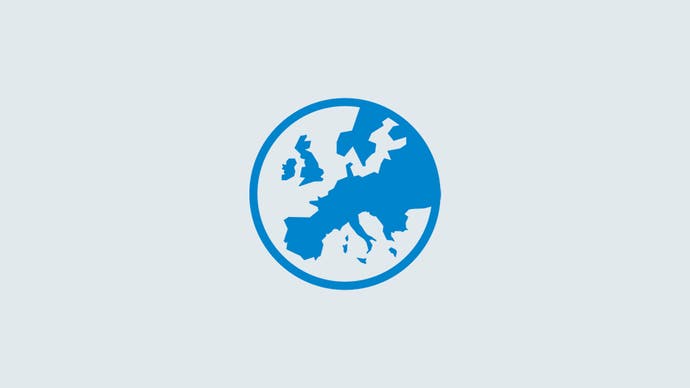
Digital Foundry recently put the Oculus Rift DK2 under the microscope and gave a thorough analysis.
